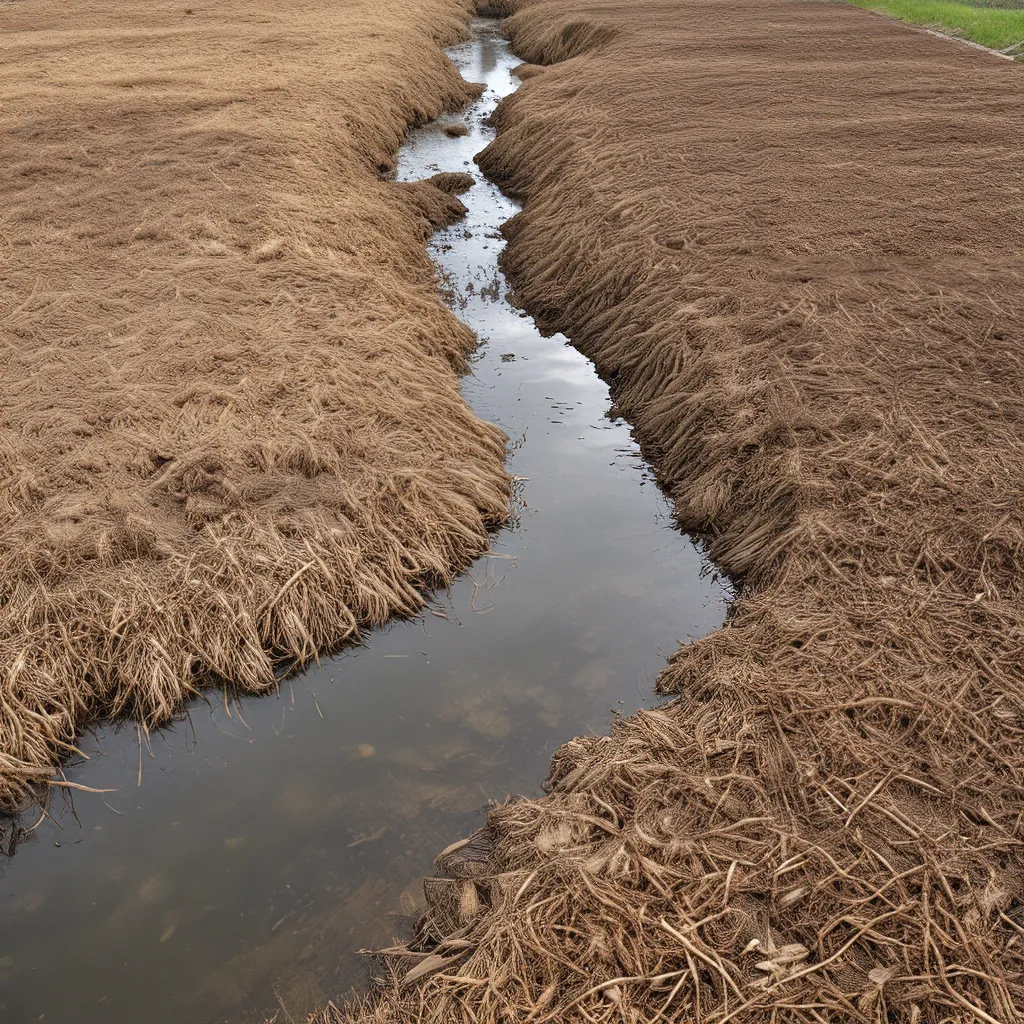
As an avid proponent of sustainability and renewable energy, I’ve been fascinated by the intersection of wastewater treatment and the burgeoning bioeconomy. You see, I firmly believe that the future of our planet lies in our ability to harness the incredible potential of biomass – the organic matter derived from living organisms. And when it comes to wastewater treatment, the possibilities are truly astounding.
Embracing the Circular Bioeconomy
Let me paint you a picture. Imagine a world where the very waste products we produce become the fuel that powers our progress. This is the essence of the circular bioeconomy – a revolutionary model that seeks to transform our linear, wasteful systems into a closed-loop, sustainable ecosystem.
At the heart of this vision lies the water hyacinth, an aquatic plant that has often been viewed as a nuisance, clogging up waterways and disrupting delicate ecosystems. But in the realm of the bioeconomy, this unassuming plant is a hidden gem. Recent research has revealed that water hyacinth biomass can be harnessed to produce a wide range of valuable products, from biofuels to bioplastics to fertilizers.
A study from Ethiopia has outlined a comprehensive policy framework that could unlock the immense potential of water hyacinth in the circular bioeconomy. By integrating this versatile plant into wastewater treatment systems, we can not only address the challenge of water pollution but also generate valuable bioproducts that can be used to fuel economic growth and sustainable development.
Transforming Wastewater into Renewable Resources
But the potential of biomass in wastewater treatment goes beyond just the water hyacinth. Anaerobic digestion, a process that breaks down organic matter in the absence of oxygen, can be used to convert the sludge and other organic waste from wastewater treatment plants into biogas – a renewable and clean-burning fuel that can be used to generate electricity or heat.
Recent research has also explored the use of microalgae in wastewater treatment, where these tiny photosynthetic organisms can be grown on the nutrients present in the wastewater, effectively cleaning the water while producing biomass that can be used for a variety of applications, from biofuels to animal feed to cosmetics.
The beauty of these biorefinery approaches lies in their ability to transform waste into wealth. By extracting value from the organic matter present in wastewater, we can not only improve water quality but also generate sustainable products that can drive economic growth and environmental preservation.
Unlocking the Potential of Wastewater Biorefineries
One of the key challenges in realizing the full potential of wastewater biorefineries is the need for integrated, scalable technologies that can efficiently convert biomass into valuable products. Researchers have been exploring innovative approaches, such as the use of microorganisms to break down complex organic compounds and the integration of renewable energy sources to power the conversion processes.
As I delve deeper into this topic, I’m truly excited by the prospect of Alpha Wastewater’s role in shaping the future of the bioeconomy. By leveraging their expertise in wastewater treatment and their commitment to sustainable solutions, they are well-positioned to be at the forefront of this transformative shift.
Embracing the Bioeconomy Mindset
But the journey towards a truly circular bioeconomy is not without its challenges. There are complex policy and regulatory frameworks that need to be navigated, and the public perception of wastewater-derived products can be a hurdle to overcome.
However, I firmly believe that by embracing a bioeconomy mindset, we can unlock the vast potential of biomass and revolutionize the way we manage our water resources. It’s about rethinking our waste streams, seeing them not as liabilities but as untapped reservoirs of value.
As I continue to explore this exciting field, I’m inspired by the possibility of a future where the very byproducts of our civilization become the building blocks of a sustainable, prosperous society. And I’m eager to see how Alpha Wastewater and other industry leaders will shape this dynamic and rapidly evolving landscape**.
So, let’s dive in, shall we? The bioeconomy awaits, and the future of our planet is in our hands.